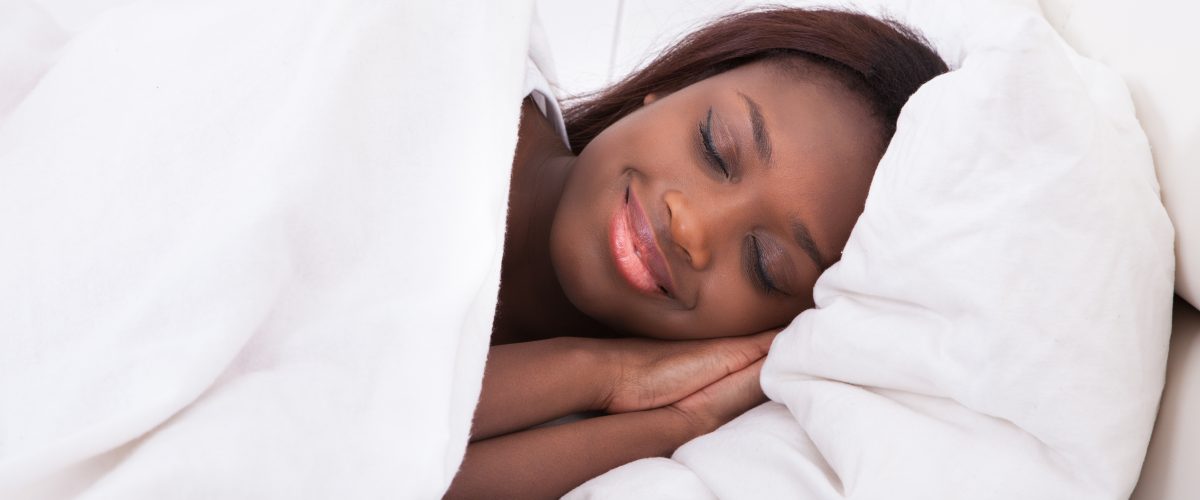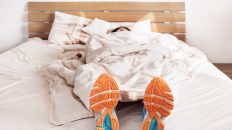By Virginia Gurley, MD, MPH
MB (Marc Braman, MD, MPH):
Hi, I’m Dr. Marc Braman, here with one of our Lifestyle Facts experts, Dr. Virginia Gurley talking about how sleep is key for mental and emotional health. Welcome Dr. Gurley!
VG (Virginia Gurley, MD, MPH):
Thank you, Dr. Braman.
MB:
So, we’ve all heard that we’re supposed to get 8 hours of sleep a night and that’s supposed to be good for our health, but what about mental and emotional health. Is sleep important for that?
VG:
Yes, getting at least 7 to 8 hours of sleep each night is critical to good mental and emotional health, and it’s not just about how tired or energetic you feel. Sleep is when the mind does all the repairing, healing and building activities that are key to how well you function during the day. If you cut your sleep short, then the mind doesn’t have enough time for it’s restorative and growth processes.
MB:
Ok, but this is pretty challenging in our 24/7 world these days. I mean sleep seems more like a luxury. So just to play devil’s advocate a little bit, if I sleep 6 hours a night, I have a lot more time to do other things. I mean even things that are good for me like exercising, and cooking good food, spending time with my family and friends. Losing 2 hours adds up to a lot of time, which seems like I’m just lying in bed and doing nothing.
VG:
Yeah, on the surface it can seem like a waste of time, until you understand how cutting corners on sleep really short circuits your ability to function well mentally and emotionally. In addition to the tiredness and poor concentration that we all recognize, research shows that too little sleep increases the body’s release of the stress hormone cortisol, it increases levels of anxiety, and increases your risk for developing major depression.
Short sleep even increases the chances you will misinterpret other people’s facial expressions, like thinking someone is angry and scowling at you when he or she has a furrowed brow simply because they have a painful headache.
MB:
So this could create a lot of problems just interpersonal conflict, and it’s sounding like sleep is causing a lot of these issues like depression and anxiety. I recall a patient I had who we discovered that her mania did just fine with little or no medication as long as we managed her sleep really well which was great for her and her care. So I see how misreading other people’s expressions would add a lot to stress in this process. But if I sleep instead of getting work done, or bills paid, or my early morning run in, that will add to my stress too.
VG:
It can seem like an equal trade-off, but the mental effects of short sleep are more than just the negatives of increased stress, or anxiety and possible depression. Research has found that the brain processes responsible for turning our daytime experiences into learning and memory do their work during sleep. And this is true not only for intellectual learning, but also motor learning like developing athletic skills or learning a new craft. So in a sense, getting enough sleep makes you smarter and faster.
MB:
Ok, that sounds pretty cool. So you’re saying that getting 7 to 8 hours of sleep can give you a competitive advantage. Are there other mental or emotional benefits from getting enough sleep that make a person more resilient (that’s the medical term we like to use which means able to bounce back from hardship)?
VG:
Well, as you know, there is a steady stream of new research about the benefits of sleep, but here is one mental/emotional benefit that strongly increases our ability to bounce back from hardship. Sleep is when your brain extinguishes fearful memories, and so if you do experience a traumatic event or an accident, being a good sleeper gives you protection against developing PTSD (Post Traumatic Stress Disorder).
MB:
That sounds like a pretty good thing. So sleep or sleep problems really is a significant cause of a lot of mental and emotional issues, and if we can identify that cause we can also use it for treatment. So many of these common conditions, depression, anxiety, perhaps mania and other things, the prescription or Rx could or should be, or should include. sleep.
So we will continue this discussion with other benefits. Thank you again, Dr. Gurley.
VG:
Thank you, Dr. Braman.
The Role of Sleep in Emotional Brain Function. Goldstein AN, Walker MP. Annual review of clinical psychology. 2014;10:679-708. doi:10.1146/annurev-clinpsy-032813-153716.
Sleep Deprivation and Stressors: Evidence for Elevated Negative Affect in Response to Mild Stressors When Sleep Deprived. Minkel JD, Banks S, Htaik O, et al. Emotion (Washington, DC). 2012;12(5):1015-1020. doi:10.1037/a0026871.
Poor sleep quality and exaggerated salivary cortisol reactivity to the cold pressor task predict greater acute pain severity in a non-clinical sample. Goodin BR, Smith MT, Quinn NB, King CD, McGuire L. Biological psychology. 2012;91(1):36-41. doi:10.1016/j.biopsycho.2012.02.020.
Sleepiness induced by sleep-debt enhanced amygdala activity for subliminal signals of fear. Motomura Y, Kitamura S, Oba K, et al. BMC Neuroscience. 2014;15:97. doi:10.1186/1471-2202-15-97.





